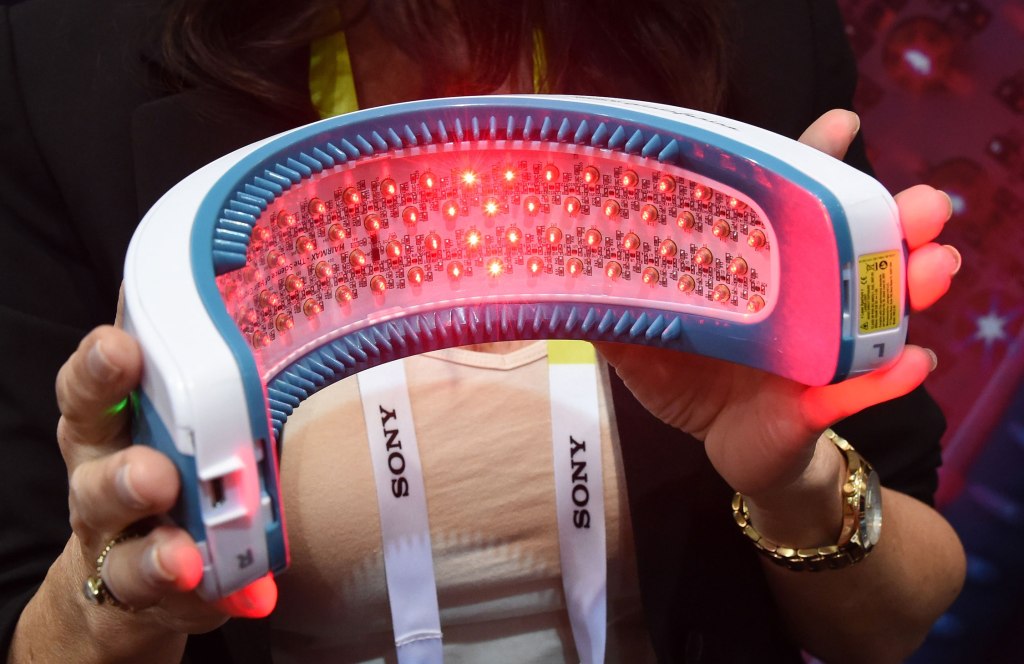Tom Goodwin
More posts from Tom Goodwin
The Consumer Electronics Show is a feast to the eyes, but an overload of the senses. Separating the profound from the gimmicks and the trends from the distractions is vital but hard. For me, there is one just one takeaway from CES this year: Everything around us is becoming digital.
So while our industry cares about digital media, digital budgets and digital strategy, we need to retool and restructure for an age when the Internet is the connective tissue behind everything, where most media is digital and where new personalized experiences are possible.
CES gets us talking about hardware when we should be focussing on the software. Forget the drones and ignore the 3D printers. Marketing won’t be changed from these developments for the foreseeable future, nor will robots, smart spoons, connected umbrellas or hoverboards.
This year it became clear how slowly hardware is changing the world, but how rapidly software is changing everything around us from business models to consumer behavior to products. In fact the biggest change to CES this year wasn’t a TV or fridge but the introduction of Lyft and Uber.
The event suffered from a lack of software integration. It was impossible to talk about the connected home without thinking of the software protocols or the user interfaces that hamper them. It was odd to talk about future TVs without thinking about over-the-top platforms. And to consider connected cars and not have Apple or Google there felt like a miss.
The event also missed companies like Microsoft, Tencent and Facebook, in a world where AI from Cortana, Siri and Alexa, or instant messaging from WhatsApp, Viber and WeChat will probably affect business in incredible ways in 2016.
I’m now more sure than ever that it’s the profound and rapid effects of software that we underestimate in our roles and the short-term changes to life from hardware that will disappoint.
From CES we did see some glimpses of the future. There were developments that seemed to shine a light into this post digital world, and these give us new ways to think about marketing and business in the modern age. To take advantage of them we need to start putting digital thinking in the core of what we do, not keep it at the edges.
Incremental media
From VR to AR a mere inches from our eyes to screens on our wrists, to fridge doors in our kitchens, smart screens in retail, smart TVs on walls, connected photo frames to seat back screens, everything is becoming a cloud-connected screen on which to play videos. Our world will soon become a series of bendable screens, projected images, paper-thin displays and transparent screens — everything will become a media moment.
We need to start considering marketing and advertising for this world. An environment where any vaguely flat surface is a place to shine bright, high-resolution videos: screens you can gesture control, voice control, interact with our phones on.
Like the smartphone, these moments are incremental; we are growing the media pie and in more places than we ever expected. The future sees seemingly endless, personal, immersive media moments. Moments like virtual reality, to the intimacy of our wrist to the near endless marketing potential of an in-car environment where our attention could finally focus as cars drive themselves.
Our personal device system will soon include a variety of opportunities we’ve not yet thought through. What should adverts look like in VR? On the fridge? What does the app store for the car look like?
We need to consider this the new canvas for advertising. Each is an incremental media moment. Each has no real precedent. We need to reconsider advertising for this post-digital world where screens allow media to be bought programmatically, with dynamically formed creative. How can advertising build over screens? How do we interact with people in new ways? How do we lead people from awareness to purchase? How do we make any surface personal and buyable? What implications does this have on privacy?
Intimate data
Forget big data. We now have something far more powerful — intimate data. From wearables to smart clothing to VR to even more data capture from smart spoons and smartphones, we’re about to enter a world where our heart rates, stress levels, food intake, exercise levels and intended actions are all in theory accessible by brands.
If we can trade data for value, if we can be transparent about our intentions and gain trust, we should enter a new era of personal, helpful marketing. If the Holy Grail is getting the right message to the right person at the right time, we just found the best data set imaginable.
Immersive video
We’re about to see VR and new platforms like Facebook and YouTube’s 360-degree video create a paradigm shift in how we see the possibilities of advertising. Already immersive social networks like Fyuse have recently begun to showcase gyroscopically related images that create 3D experiences. And thanks to improved cameras and software, we’re about to see way more.
For so long we’ve made lazy assumptions about what video and images are, but we need to assume that all display units can be more rich and immersive. We need to reimagine mobile ads based on what is now possible. Why can’t mobile ads not move with our wrists to appear 3D? Why can’t all images on screens move? Powerful new possibilities await.
We’re seeing this post-digital age pan out in many places. From car companies becoming mobility providers that you buy access to and Teslas and phones that improve with over-the-air updates to fridges that order food for you and homes that make decisions for you, we’re on the edge of software becoming the connective tissue to all products. It’s this new world that I can’t wait for the creative brains of marketing to start creating for.






























Comment